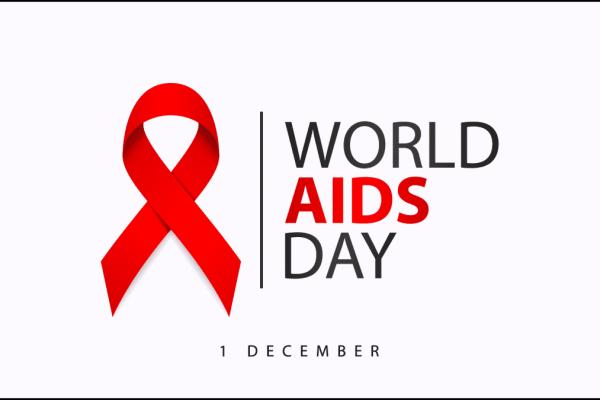World AIDS Day 2024

Today marks the 36th World AIDS Day
The first World AIDS Day took place in 1988 and provided a platform to raise awareness about HIV and AIDS and to honour the lives that have been affected.
Significant progress has been made in addressing HIV and AIDS, all thanks to the advancements in medical research. This has increased the access to treatment and prevention and allowed for a broader understanding of the virus.
Why is World AIDS Day important?
In the UK, more than 105,000 people are living with HIV. Globally it is estimated 38 million people are living with the virus. More than 35 million people have died from HIV or AIDS related illnesses over the past 40 years.
The story of the red ribbon
The red ribbon is a universal symbol of awareness and support for people living with HIV. It was first devised in 1991, when twelve artists met to discuss a new project for visual AIDS, a New York HIV awareness arts organisation. This is where they came up with what would become one of the most recognised symbols of the decade: the red ribbon. It is worn to signify awareness and support for people who are living with HIV. The artists wanted to create visual expression of compassion for people living with HIV and chose red for its boldness and also for its symbolic associations with passion, the heart and love.
Undetectable = untransmittable
There are still many misconceptions about HIV and AIDS the biggest being that it is a 'gay disease' which is of course simply untrue — there are in fact roughly the same number of heterosexual people who contract the virus. HIV is not only contracted sexually, but also through mixing of blood, which could include the sharing of intravenous needles, dialysis, or the mixing of blood between mother and unborn child.
It is often wrongly assumed that people who are living with HIV cannot have a normal, healthy sexual relationship with other people. As long as their HIV viral load is undetectable, there is no way of transmitting the virus to someone else.
Despite the fact that there is no true cure, there are however life prolonging treatments that can improve the quality of life of people living with HIV to a standard where they are able to lead a completely normal and healthy life.
GMB and AIDS
GMB recognises the stigma attached to being HIV positive or living with AIDS. Even though we are on the brink of ending AIDS as a global health threat through anti-retroviral therapy, there still remains a lot of work to do inside the workplace and out, to end this stigma. GMB stands with our brothers, sisters and siblings in working to end discrimination relating to HIV status.
Information Sources:
https://lgbt.foundation/world-aids-day-a-legacy-of-queer-activism/
https://www.hiv.gov/events/awareness-days/world-aids-day
https://worldaidsday.org/about/
Organisations:
The Elton John AIDS Foundation: https://www.eltonjohnaidsfoundation.org/
National Aids Trust: https://www.nat.org.uk/
Terrence Higgins Trust: https://www.tht.org.uk/
UNAIDS: https://www.unaids.org/en



